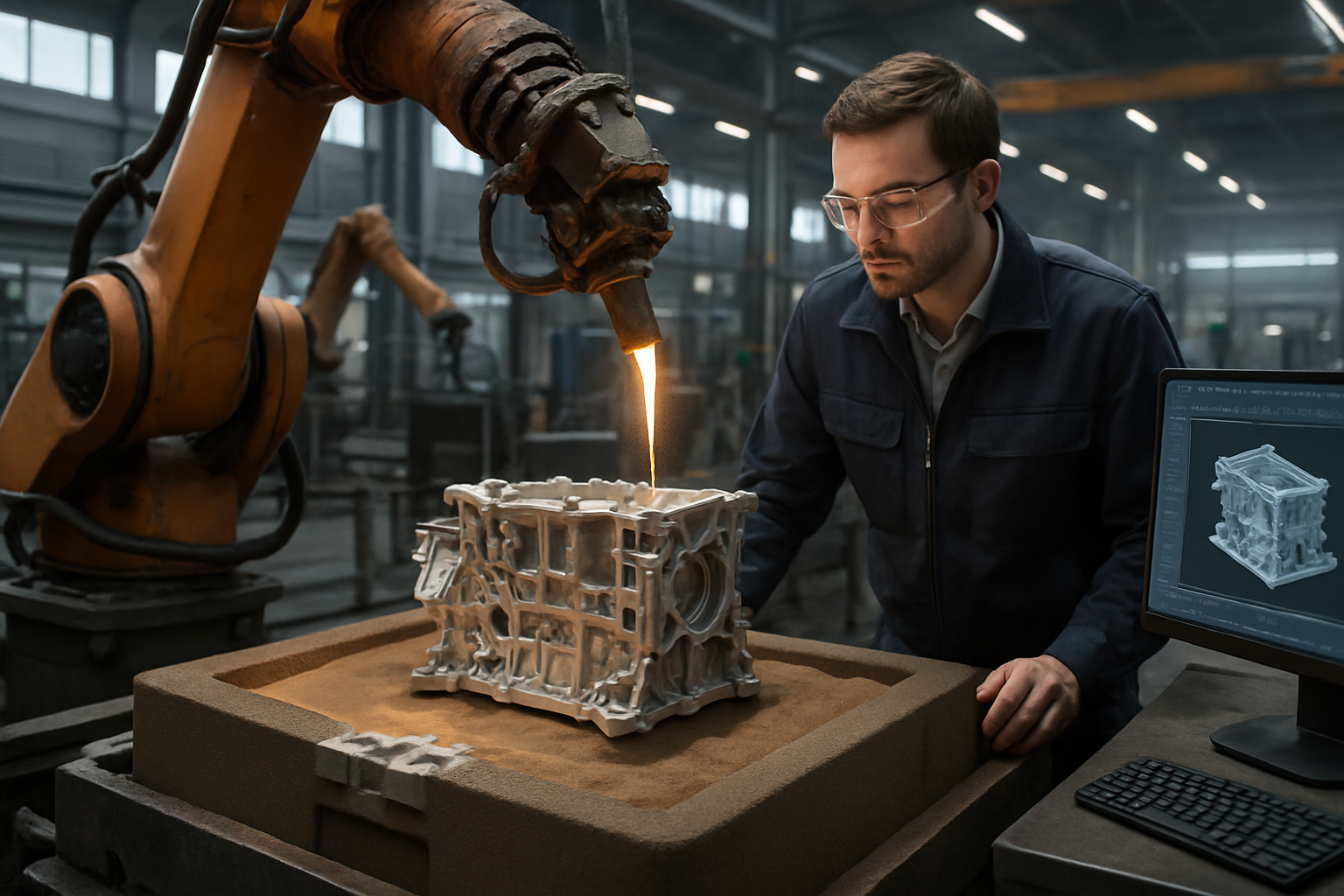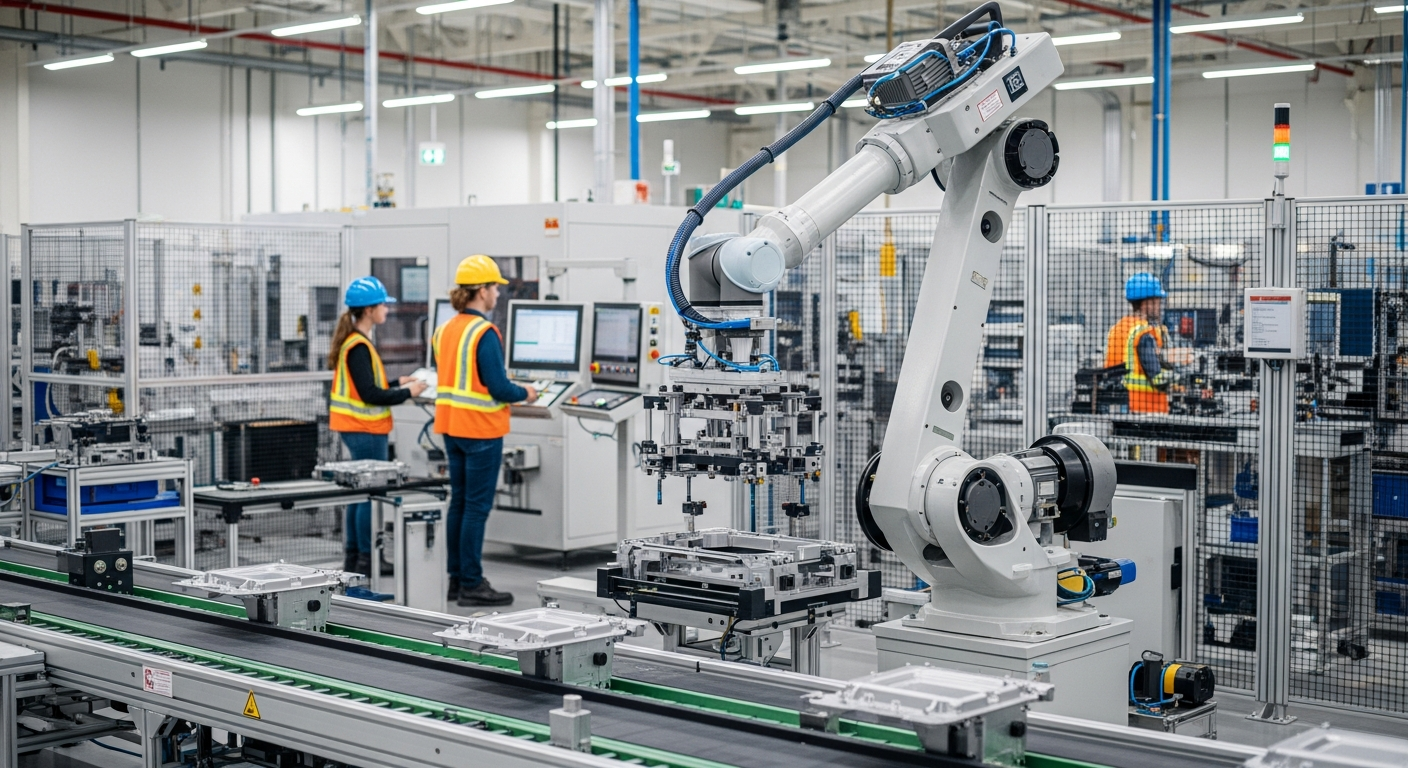Precision Manufacturing: Reshaping Industrial Competitiveness
In today's fast-paced industrial landscape, precision manufacturing stands out as a game-changing approach that's redefining production standards and competitive advantage. This cutting-edge methodology combines advanced technologies, rigorous quality control, and innovative processes to achieve unprecedented levels of accuracy and efficiency in manufacturing.

The Evolution of Precision Manufacturing
Precision manufacturing has its roots in the early 20th century, with the advent of mass production techniques. However, it wasn’t until the latter half of the century that true precision manufacturing began to take shape. The introduction of computer numerical control (CNC) machines in the 1950s marked a significant leap forward, allowing for more accurate and repeatable production processes.
As technology advanced, so did the capabilities of precision manufacturing. The integration of computer-aided design (CAD) and computer-aided manufacturing (CAM) systems in the 1980s further enhanced precision and efficiency. Today, precision manufacturing encompasses a wide array of technologies and methodologies, including 3D printing, laser cutting, and advanced metrology systems.
Key Components of Precision Manufacturing
At its core, precision manufacturing relies on several key components that work in harmony to achieve exceptional results. These include:
-
Advanced machinery and equipment
-
High-precision measurement and inspection tools
-
Sophisticated software for design and process control
-
Stringent quality management systems
-
Highly skilled and trained workforce
Each of these components plays a crucial role in ensuring the accuracy, consistency, and reliability of precision-manufactured products. For instance, advanced machinery enables the production of complex geometries with tight tolerances, while high-precision measurement tools ensure that each part meets exacting specifications.
Industries Transformed by Precision Manufacturing
Precision manufacturing has had a profound impact across numerous industries, revolutionizing production processes and enabling the creation of previously impossible products. In the aerospace industry, for example, precision manufacturing has enabled the production of lighter, more fuel-efficient aircraft components. In the medical field, it has made possible the creation of intricate implants and prosthetics that dramatically improve patient outcomes.
The automotive industry has also been significantly impacted, with precision manufacturing enabling the production of more efficient engines, advanced safety systems, and complex electronic components. In the electronics sector, it has facilitated the miniaturization of devices and the development of increasingly powerful and energy-efficient components.
Competitive Advantages of Precision Manufacturing
Adopting precision manufacturing techniques offers several competitive advantages for businesses:
-
Enhanced product quality and reliability
-
Reduced waste and material costs
-
Increased production efficiency and throughput
-
Greater flexibility in product design and customization
-
Improved compliance with industry standards and regulations
These advantages translate into tangible benefits for companies, including increased market share, higher customer satisfaction, and improved profitability. Moreover, precision manufacturing enables businesses to tackle more complex projects and enter new markets that were previously out of reach.
Challenges and Considerations
While the benefits of precision manufacturing are clear, implementing this approach is not without its challenges. Some key considerations include:
-
High initial investment costs for equipment and technology
-
Need for specialized workforce training and development
-
Complexity of integrating precision manufacturing into existing processes
-
Ongoing maintenance and calibration requirements
-
Keeping pace with rapidly evolving technologies
Overcoming these challenges requires a strategic approach, careful planning, and a commitment to continuous improvement. Companies must be prepared to invest not only in technology but also in their workforce and organizational processes to fully realize the benefits of precision manufacturing.
Strategies for Implementing Precision Manufacturing
• Conduct a thorough assessment of current manufacturing processes to identify areas for improvement
• Invest in state-of-the-art machinery and measurement equipment
• Implement robust quality management systems and processes
• Develop comprehensive training programs for employees at all levels
• Foster a culture of continuous improvement and innovation
• Collaborate with suppliers and partners to ensure precision throughout the supply chain
• Utilize data analytics to optimize processes and identify potential issues
• Stay informed about emerging technologies and industry trends
The Future of Precision Manufacturing
As we look to the future, precision manufacturing is poised to play an even more critical role in industrial competitiveness. Emerging technologies such as artificial intelligence, machine learning, and advanced robotics are set to further enhance the capabilities of precision manufacturing, enabling even greater levels of accuracy, efficiency, and customization.
Moreover, the growing emphasis on sustainability and resource efficiency is likely to drive further innovations in precision manufacturing techniques. As industries strive to reduce waste and improve energy efficiency, precision manufacturing will be key to developing more sustainable production processes and products.
In conclusion, precision manufacturing represents a paradigm shift in industrial production, offering unprecedented levels of accuracy, efficiency, and innovation. As companies continue to embrace this approach, we can expect to see dramatic improvements in product quality, production efficiency, and overall industrial competitiveness. Those who successfully implement precision manufacturing techniques will be well-positioned to lead their industries and shape the future of manufacturing.






